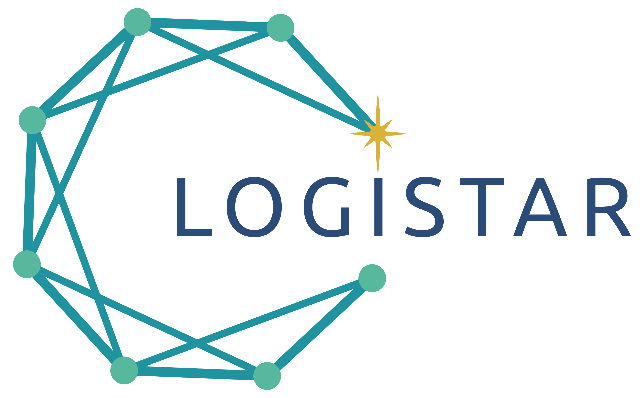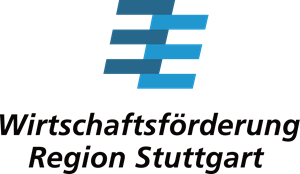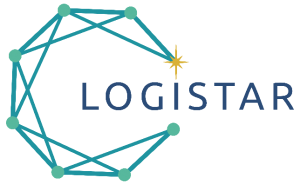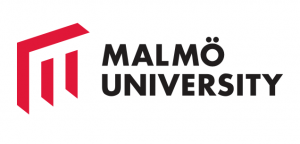The LOGISTAR objective is to allow effective planning and optimizing of transport operations in the supply chain by taking advantage of horizontal collaboration, relying on the increasingly real-time data gathered from the interconnected environment. For this, a real-time decision-making tool and a real-time visualization tool of freight transport has been developed, with the purpose of delivering information and services to the various agents involved in the logistic supply chain, i.e., freight transport operators, their clients, industries, and other stakeholders such as warehouse or infrastructure managers.
LOGISTAR has addressed several advances beyond the State of the Art in the interdisciplinary field of the smart algorithms for data processing: Artificial Intelligence focussed on prediction, parallel hybrid metaheuristics for optimization, automated negotiation techniques, and constraint satisfaction problem solving techniques. The resulting platform outperforms other market products and services such as Freight Exchange Systems, Collaborative Platforms, Transport Control Towers and Routing Systems.
LOGISTAR has been tested through the implementation of four living labs, of which three physical and one virtual.
The first living lab is concentrated on Backhauling and Co-loading to respond to the lack of a global view of the operations, which can lead to missed opportunities of collaboration. The partners involved in this living lab are Nestlé and Pladis that have special interest in a horizontal and co-loading collaboration. In fact, this collaboration has allowed to reduce the running of empty vehicles by 270,000 kilometres per year since 2007.
LOGISTAR has been fed with real information on different logistic operations in the area of distribution and warehousing of NESTLÉ and PLADIS in the UK. This testing case has been focused on showing how the information delivered by the decision-making tool developed in LOGISTAR can improve the backhauling management (the practice of not sending the cargo trucks back empty rather having them take some cargo back to the original source).
The second living lab aims at developing the Synchromodality. The partners involved in this trial are Zailog and Codognotto. LOGISTAR system has been tested on the goods being transported between hubs, directly involving the Verona freight village, and studying the various processes in the terminal, such as loading/ unloading, transhipment, bundling, among others. This testing case has been focused on showing how the information delivered by the decision-making tool developed in LOGISTAR can improve the logistic operations increasing the synchromodality. The system has been implemented on the Italy-UK route, using three transport modes: road, rail, and sea.
The third living lab is focused on the Dynamic Appointment Scheduling & Accurate ETA Calculation for LTL/FTL Trucks. The partner involved in this pilot is CHEP. This company has identified that there is a huge waste of time which is generated due to the waiting at loading and unloading locations. The Living Lab has been based at the Service Center in Fuenlabrada (Madrid area, Spain). CHEP uses a static appointment scheduling tool as part of our BluJay TMS system which causes important delays and frustration among the driver community. CHEP has experienced that multi-party planning and collaboration can only be successful if vehicle timeslots are respected and turnaround time at the pallet depots are minimized. This is only possible if live and accurate vehicle ETA (Estimated Time of Arrival) data is integrated with the network planning system. In this new Living Lab, CHEP has develop and tested the use of its real-time positioning and order planning data to feed the LOGISTAR system, so as to calculate an accurate ETA of its vehicles and enable replanning between different network nodes, reducing cascading transport delays between the pallet network nodes.
In addition to these, a Virtual Living Lab based on historic data from real supply chain operations has been set by Ahlers allowing to implement stress test over the solution, contemplating disrupting situations or demand patterns rarely seen, with the benefit of testing the proper operation of the system under adverse situations. Ahlers had either re-used and modified the real-life datasets of LL1 or LL2 to simulate risks and disruptions and to feed LOGISTAR with real-life data from other supply chain networks which include fictitious, simulated risks and disruptions. This resulted in a more robust and “risk proof” version of the LOGISTAR decision support system. Ahlers has built a “Virtual Living Lab” (VLL) for network analytics and optimization which were impossible or too complex to test in LOGISTAR physical Living Labs.
In the LOGISTAR project, Zailog is the leader of the dissemination and exploitation work package as well as of the living lab 2.
A quick overview of the project and of the main results achieved in the testing phase are described on the LOGISTAR video below.
The LOGISTAR project is funded by the Horizon 2020 programme.


Paolo Lunardi
Project Manager at ZAILOG scarl

Alberto Milotti
Head of Marketing at Consorzio ZAI - Interporto Quadrante Europa Verona
Share this article in your social media
Although we ensured to have up-to-date and accurate information, the publisher OPEN ENLoCC, nor the editor and the author, are not liable for errors and omissions. The publisher and the editor did not test products or services described and their inclusion does not imply any form of endorsement. By accepting advertisements in this publication, the publisher does not warrant their accuracy, nor accept responsibility for their contents. The publisher welcomes unsolicited manuscripts and illustrations but can accept no liability for their safe return. Reproduction (in whole or in part) of any text, photograph or illustration contained in this publication without the written permission of the publisher is strictly prohibited.
© 2022 OPEN ENLoCC All rights reserved.
 The publication of the European Review of Regional Logistics is supported by a grant of Wirtschaftsförderung Region Stuttgart GmbH (WRS).
The publication of the European Review of Regional Logistics is supported by a grant of Wirtschaftsförderung Region Stuttgart GmbH (WRS).
European regional review, Issue 2022/1
Other articles in this issue

Stuttgart Region’s position on hydrogen
Interview with Dr. Walter Rogg, head of the regional economic development corporation WRS Sehr geehrter Herr Dr. Rogg,With combustion engines on the way out, why
ST4W: Data flows for smart waterways
The ST4W (Smart Track for Waterways) project is supported by the INTERREG NWE programme of the European Union. It aims at promoting and increasing the
SMART-CORRIDORS project
Smart Supply Chain and Intelligent Intermodal Corridor Management for the China-Europe land-sea express line.” Recent research and business practice pinpoint that the integration of new
Promoting Hydrogen in Valencia
On 13 October 2021, the “H2VLC Valencia Hydrogen Valley” project was presented at the Valencia City Council headquarters, with the participation of more than 40

MAHEPA: Towards environmentally friendly hybrid-electric short haul air transportation
The Challenge The future competitiveness of the aviation sector largely depends on its environmental footprint. With the aviation industry responsible for 2 % of all

LOGISTAR – transport operations by horizontal collaboration, relying on real-time data
The LOGISTAR objective is to allow effective planning and optimizing of transport operations in the supply chain by taking advantage of horizontal collaboration, relying on
Hydrogen for transport in Stuttgart Region
Why is hydrogen a topic in Stuttgart Region? Stuttgart Region is a high-density area in the center of Europe. Its 2.8 million inhabitants rely heavily

FEDeRATED: a viable network of platforms for data sharing in freight transport and logistics
On 24th of November 2021 the Mid Term Review meeting of the FEDeRATED project was held at the Codognotto headquarters in Salgareda (Italy). The project

A relational business model of e-logistics facilities
“How come logistics operators’ return on investments is so low despite that warehouse operations are very cost efficient?”, is a strategic question that I and
19th European Transport Congress of the EPTS Foundation e. V. held in Maribor
On 7 and 8 October 2021, the University of Maribor hosted the international scientific congress “European Green Deal – Challenges and Solutions for Mobility and

Stuttgart Region’s position on hydrogen
Interview with Dr. Walter Rogg, head of the regional economic development corporation WRS Sehr geehrter Herr Dr. Rogg,With combustion engines on the way out, why
ST4W: Data flows for smart waterways
The ST4W (Smart Track for Waterways) project is supported by the INTERREG NWE programme of the European Union. It aims at promoting and increasing the
SMART-CORRIDORS project
Smart Supply Chain and Intelligent Intermodal Corridor Management for the China-Europe land-sea express line.” Recent research and business practice pinpoint that the integration of new
Promoting Hydrogen in Valencia
On 13 October 2021, the “H2VLC Valencia Hydrogen Valley” project was presented at the Valencia City Council headquarters, with the participation of more than 40

MAHEPA: Towards environmentally friendly hybrid-electric short haul air transportation
The Challenge The future competitiveness of the aviation sector largely depends on its environmental footprint. With the aviation industry responsible for 2 % of all

LOGISTAR – transport operations by horizontal collaboration, relying on real-time data
The LOGISTAR objective is to allow effective planning and optimizing of transport operations in the supply chain by taking advantage of horizontal collaboration, relying on
Hydrogen for transport in Stuttgart Region
Why is hydrogen a topic in Stuttgart Region? Stuttgart Region is a high-density area in the center of Europe. Its 2.8 million inhabitants rely heavily

FEDeRATED: a viable network of platforms for data sharing in freight transport and logistics
On 24th of November 2021 the Mid Term Review meeting of the FEDeRATED project was held at the Codognotto headquarters in Salgareda (Italy). The project

A relational business model of e-logistics facilities
“How come logistics operators’ return on investments is so low despite that warehouse operations are very cost efficient?”, is a strategic question that I and
19th European Transport Congress of the EPTS Foundation e. V. held in Maribor
On 7 and 8 October 2021, the University of Maribor hosted the international scientific congress “European Green Deal – Challenges and Solutions for Mobility and